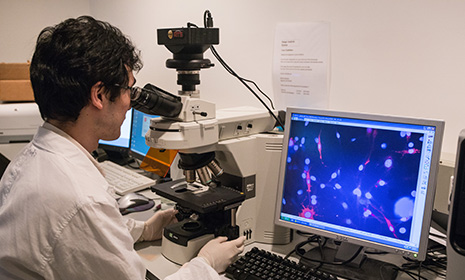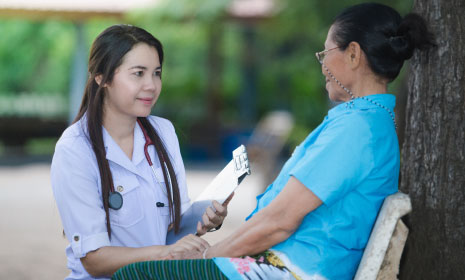HKUMed’s global collaborative study finds single-dose baloxavir reduces household influenza transmission
A landmark study published in The New England Journal of Medicine [link to the publication] reveals that a single oral dose of baloxavir marboxil (baloxavir) significantly reduces the transmission of influenza within households, marking a major advancement in influenza management. Conducted by an international team of researchers including the LKS Faculty of Medicine, the University of Hong Kong (HKUMed), the CENTERSTONE trial provides the first robust evidence that an antiviral treatment can curb the spread of influenza to close contacts.
Research methods and findings
The phase 3b, double-blind, randomised, placebo-controlled trial enrolled 1,457 influenza-positive index patients and 2,681 household contacts across 15 countries from 2019 to 2024. The index patients, aged 5 to 64, were assigned to receive either baloxavir or a placebo within 48 hours of symptom onset. The primary endpoint was laboratory-confirmed influenza transmission to household contacts by day 5.
Key Findings:
- Treatment with baloxavir reduced the odds of untreated household members contracting the virus by 32%.
- Transmission resulting in symptomatic influenza was lower with baloxavir (5.8% vs. 7.6%), though the difference was not statistically significant (P=0.16).
- Baloxavir led to a faster reduction in viral titers, with a mean reduction of 2.22 log₁₀ TCID₅₀/mL by day 3 compared to 1.85 log₁₀ TCID₅₀/mL for placebo.
- Drug-resistant viruses emerged in 7.2% of baloxavir-treated index patients but were not detected in household contacts, suggesting limited transmission risk.
- No new safety concerns were identified, with adverse events reported in 4.6% of baloxavir-treated patients compared to 7.0% in the placebo group.
Significance of the research
‘These results highlight baloxavir’s potential not only to treat influenza but also to reduce its spread within communities,’ said Professor Benjamin Cowling, co-author of the study and Helen and Francis Zimmern Professor in Population Health, Chair Professor of Epidemiology, and Head of the Division of Epidemiology and Biostatistics, School of Public Health, HKUMed. ‘This dual effect could transform how we manage seasonal influenza and prepare for future pandemics.’
The study underscores the complementary role of antiviral drugs alongside vaccination, particularly in unvaccinated populations or during pandemics when vaccines may not be immediately available.
Acknowledgements
The CENTERSTONE trial was funded by F. Hoffmann-La Roche and the U.S. Department of Health and Human Services.








.png)
